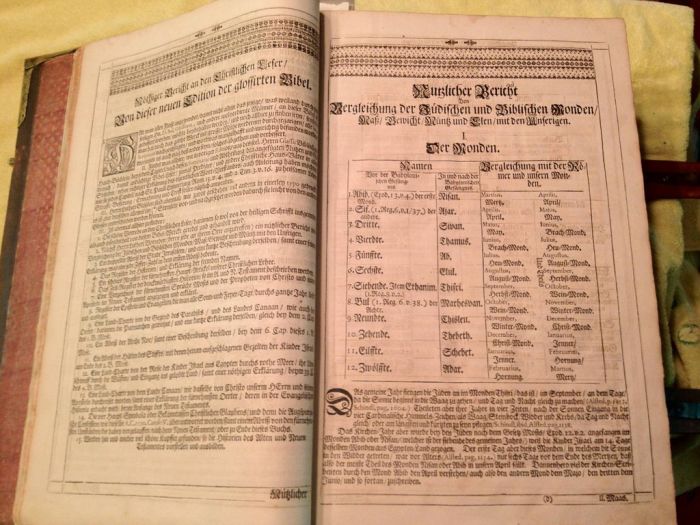|
|
German Bible From 1708
|
Medieval Latin biblia is short for biblia sacra "holy book", while biblia in Greek and Late Latin is neuter plural (gen. bibliorum). It gradually came to be regarded as a feminine singular noun (biblia, gen. bibliae) in medieval Latin, and so the word was loaned as a singular into the vernaculars of Western Europe. Latin biblia sacra "holy books" translates Greek τὰ βιβλία τὰ ἅγια ta biblia ta hagia, "the holy books".
The word βιβλίον itself had the literal meaning of "paper" or "scroll" and came to be used as the ordinary word for "book". It is the diminutive of βύβλος bublos, "Egyptian papyrus", possibly so called from the name of the Phoenician sea port Byblos (also known as Gebal) from whence Egyptian papyrus was exported to Greece. The Greek ta biblia (lit. "little papyrus books") was "an expression Hellenistic Jews used to describe their sacred books (the Septuagint). Christian use of the term can be traced to ca. 223 CE. The biblical scholar F.F. Bruce notes that Chrysostom appears to be the first writer (in his Homilies on Matthew, delivered between 386 and 388) to use the Greek phrase ta biblia ("the books") to describe both the Old and New Testaments together.
|
|









